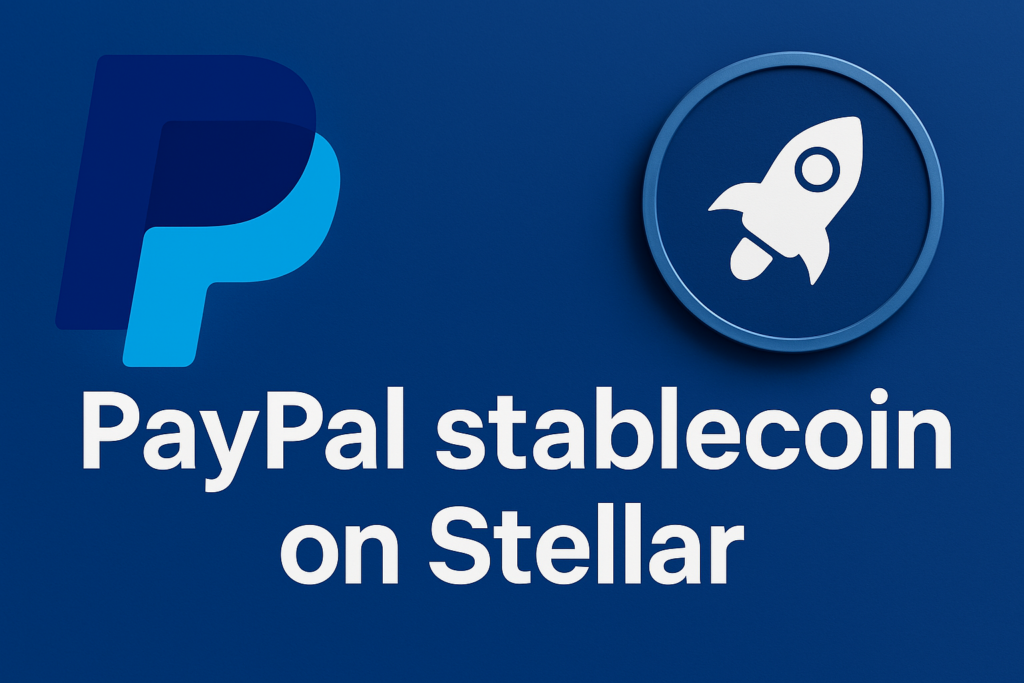
The landscape of digital payments is evolving rapidly, and at the forefront of this shift is the strategic alignment between PayPal’s stablecoin (PYUSD) and the Stellar blockchain network. The recent announcement that PayPal stablecoin on Stellar will support new enterprise-focused use cases marks a significant step forward in mainstream blockchain adoption. This development enhances PayPal’s role as a major fintech player embracing Web3 infrastructure. It also reinforces Stellar’s position as a scalable, compliant blockchain network suitable for enterprise-grade applications.
What Is PYUSD?
PYUSD, or PayPal USD, is a U.S. dollar-pegged stablecoin issued by Paxos Trust Company. Launched in 2023, PYUSD was designed to provide seamless transfers and payments within PayPal’s vast financial ecosystem. It meets stringent regulatory requirements. PYUSD is fully backed by U.S. dollar deposits, short-term Treasuries, and similar cash equivalents, ensuring it remains redeemable 1:1 for dollars. Its integration with Stellar paves the way for innovative financial services, particularly cross-border payments and on-chain settlement across both traditional and decentralized environments.
The Stellar Advantage for Enterprise
Stellar’s reputation as a fast, cost-effective, and energy-efficient blockchain makes it particularly well-suited for enterprise applications. The Stellar Development Foundation (SDF) commits to financial inclusion, regulatory compliance, and interoperability. These factors crucial for institutional adoption.
This is unlike some Layer 1 blockchains that focus primarily on decentralized finance (DeFi) and retail use cases. Stellar has consistently positioned itself as a bridge between traditional finance (TradFi) and blockchain technology. With the addition of PayPal stablecoin on Stellar, enterprises now have a viable pathway to leverage digital assets within secure and compliant frameworks.
Enterprise Adoption & the GENIUS Act
One critical factor enabling this synergy is the growing legislative support for blockchain innovation. This mainy comes through efforts like the GENIUS Act (Government and Enterprise National Integration Using Standards). The GENIUS Act encourages federal and state agencies to explore blockchain-based solutions for identity, remittances, aid distribution, and financial infrastructure modernization.
By establishing technical and regulatory standards for blockchain adoption, the GENIUS Act helps remove uncertainty for large enterprises and public institutions. It provides a more welcoming regulatory environment for stablecoins like PYUSD and blockchain protocols like Stellar. This empowers those ecosystems to flourish in highly regulated sectors, including banking, insurance, and government.
PayPal’s Plans to Use Stellar for New Use Cases
According to an official press release from Stellar, the desire to unlock new use cases beyond PayPal’s native platform drives PayPal’s decision to bring PYUSD to the Stellar network. This includes:
- Cross-border payments that settle in seconds, with minimal fees, ideal for emerging markets and remittance corridors.
- Treasury management tools for businesses to hold and move dollar-backed assets programmatically.
- Programmable payments via smart contracts for automated payroll, supply chain disbursements, or subscription services.
- Integration with wallet partners and fintech apps leveraging Stellar’s ecosystem to access PYUSD.
By making PYUSD available on Stellar, PayPal expands its infrastructure and extends its influence into sectors previously limited by high fees or slow transaction speeds.







